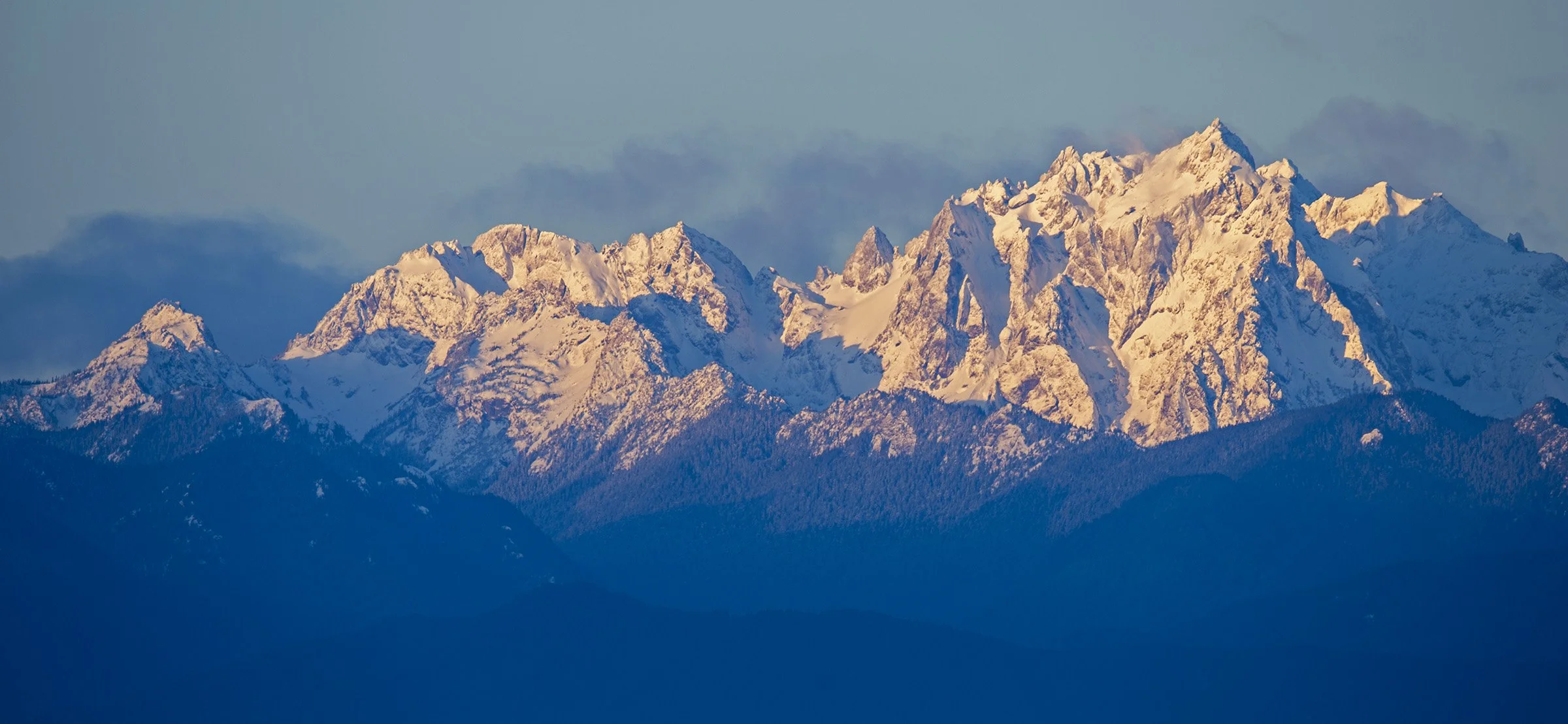Common Ground
By Safina Center Senior Fellow Amy Gulick
The Olympic Mountains in Washington State ©Amy Gulick
This fall I received a phone call from Washington Wild, a conservation organization that has helped to protect three million acres of designated Wilderness in my home state of Washington. Thanks to their tireless efforts over the last four decades conserving our wild lands and waters, I’m able to experience the beauty and solitude of the forests, rivers, beaches, and alpine mountains near my home. And so the phone call informing me that I was chosen to receive the organization’s Conservation Voices Award came as a surprise. Sure, I use my tools of photographs, words, and stories to help people understand why nature is important for people and our non-human relations. But I’m not on the ground every day doing the critical work of organizing, monitoring, and strategizing how to conserve nature for a livable planet and then actually accomplishing it. That’s the work of countless unsung heroes.
At the awards ceremony and dinner, I was surprised that I didn’t know a single person in the full and festive room. I’ve been involved in the conservation community in my home state for three decades and over the years I’ve gotten to know many of the stalwarts. Sure, people burn out and age out, but there are always familiar faces at an event like this. But not this time. Meeting new people and listening to the conversations, I felt a surge of joy. The crowd that night was different than what I was used to—more diverse in age, skin color, and reasons for being there: Indigenous people whose ways of life revolve around caring for forests, rivers, oceans and the wildlife within; outdoor recreationists who appreciate the beauty and solitude of wild places; and local brewery owners who know the importance of clean water to their businesses.
Amy Gulick receives the Conservation Voices Award from Washington Wild, presented to her by Scott Schuyler, an enrolled member of the Upper Skagit Indian Tribe.
After I received my award and returned to my seat, I glanced down at the plaque I was given. For exceptional contributions to the cause of protecting Washington’s wild lands and waters, the inscription read. I took exception to the word exceptional, which by definition means uncommon. Part of the joy I felt that night was the realization that caring for nature has become more mainstream, more inter-generational, more diverse, more, well—common. And that people from all walks of life are coming together for the common good to ensure that what we all share in common—our one Earth home— is livable for us and our non-human neighbors.
Amy Gulick, Safina Center Fellow, is the author/photographer of The Salmon Way: An Alaska State of Mind and Salmon in the Trees: Life in Alaska’s Tongass Rain Forest.
See: www.amygulick.com


